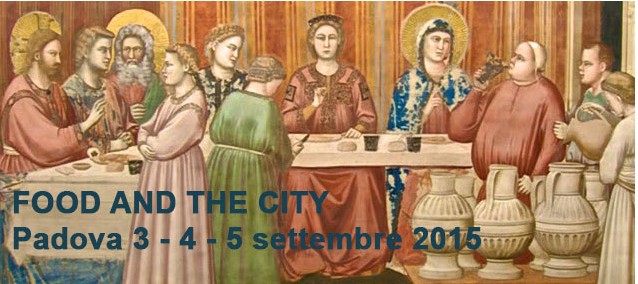
Dans le cadre du colloque :
« Food and the city »
> les 3-5 sept. 2015
> lieu : Padoue
Over the centuries, food has always played a vital role in the city’s history permeating, in a tight relationship with the territory, its economy, the structuring of places, the articulation of functions, the shape of the built-up areas and open spaces, the flow of everyday life and collective rituals. Through food choices, divisions and the mingling of groups, ethnicities and religions have found material expression; social gaps have been evidenced; the intimacy of the home dinner table has been created; and the sharing of extraordinary events has taken place, both in times of peace and war. The links between food and the social life of places have produced cultural values that are now recognized as part of the historical heritage of cities and territories, like an essential component of collective memories and narratives, as the foundation of urban, regional and national identities. Since ancient times and right up to the contemporary age, processes related to the production, preparation, trade, distribution and consumption of food have been the focus of policies implemented by city and state authorities, points of comparison and contention between social classes and interest groups, in a constant dialectic between producers and consumers, between rules and practices, between regulation and free enterprise. The architecture of the spaces allocated to these functions, the settings and representations of banquets and ceremonies, and changes of customs and fashions enact the multiple ties between food and urban life, offering insights to enhance the specific role it plays in the history of cities and territories. In the year of the Expo 2015 in Milan, the AISU Conference, organized by the Department of Historical, Geographical and Antiquity Sciences of the University of Padua, is promoting a broad interdisciplinary exchange between scholars on various topics relating to the history of the city, from which the urban structure emerges, yet again, as protagonist in all its multifaceted complexity.